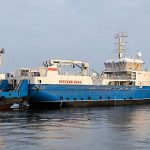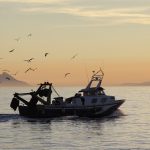The Federation agrees that there is a major problem of latent capacity in the under-10 metre fleet. However, Defra’s decision to solve the problem by pressing ahead with its policy of splitting the under 10 metre licence into two categories ( a full licence for those active under-10s targeting quota species and a limited licence allowing catches of quota species up to a of 300Kgs a year) will involve a very large measure of rough justice.
For active fishermen in the under 10m fleet, who for perfectly sensible reasons chose to target non-quota species during the arbitrary reference period of June 2006 and August 2008, all will now depend on their ability to demonstrate, through an appeals process, that they had good reasons why they did not catch minimum amounts of key quota species during the (very short) reference period.
Undoubtedly there is a large number of presently inactive under-10 fishing vessels which, if their licences were transferred onto new vessels active in fisheries for quota species, could undermine all attempts to achieve a balance between fleet capacity and available quotas in the under 10-metre sector. Defra is also wary of potential criticism for spending taxpayers’ money on a future decommissioning scheme, if the hole left by decommissioned vessels is immediately filled by incoming vessels using licences currently on inactive licences.
The difficulty lies not Defra’s attempt to put right many years of policy inertia on the under-10m issue, but the way that it proposes to solve the issue by using a split category under 10m licence.
This approach ignores the fact that using the option to change target species is and always has been, at the heart of both profitability and sustainability of the under 10m fleet. That flexibility has been necessary to adapt to changes in markets and when the fortunes of one target stock were in decline to shift to alternative species – often providing a conservation safety-relief valve. Using that flexibility to make the entirely rational but temporary decision to move away from hard pressed quota stocks is now rebounding on those vessels who made that choice and the result is potentially very harsh – having the door shut on fishing for quota species forever, except at a derisory “hobby” level.
The NFFO, during the recent consultation, along with others, advanced an alternative approach based on the idea of a licence buy-back. Removing spare capacity through a voluntary licence buy-back system has a strong pedigree in countries such as Canada, Australia, the US and South Africa. If designed properly to meet local conditions, a buy-back has the merit of being effective, voluntary, and solves the problem permanently. The route that Defra has chosen means that the Marine Fisheries Agency and successor bodies have been charged with enforcing a 300Kgs annual limit on many thousands of vessels. How exactly is that going to be done and at what cost?
In any event Defra appears to have dismissed a licence buy-back approach.
The focus will now be on the appeals process where the owners of under-10s, whose licences will have been effectively degraded and devalued, will have to make a case for receiving a full quota licence.








